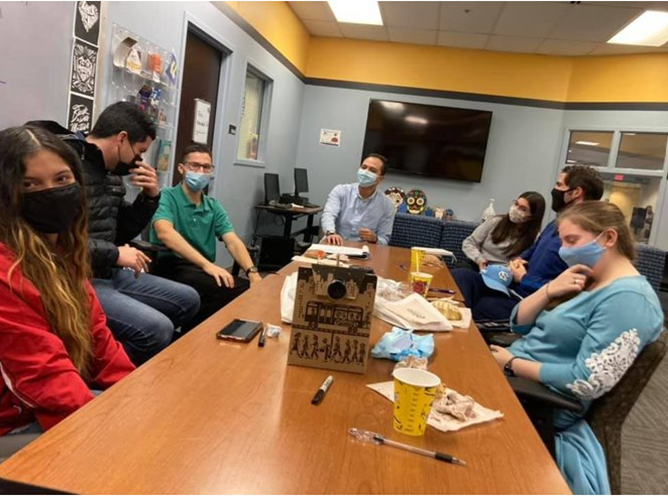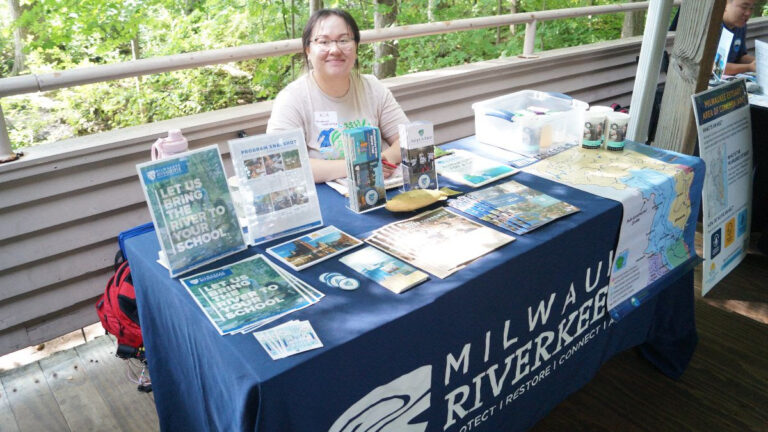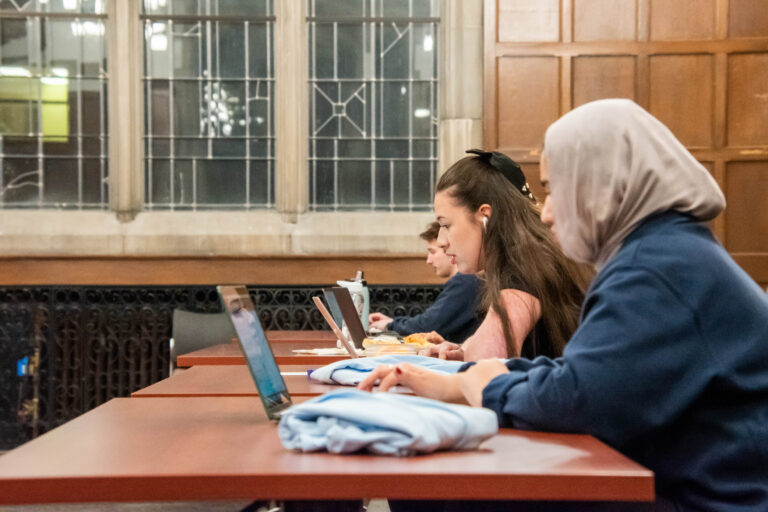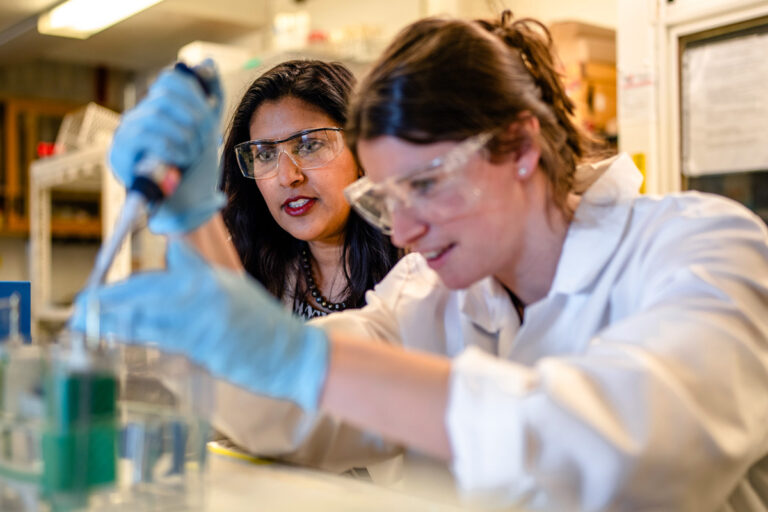
Every other Tuesday, the Marquette community grows stronger through Spanish, coffee and sweet bread.
These are the words that come to mind after Café con Leche gatherings.
Café con Leche was an initiative created with the intention of having a space for native Spanish speakers as well as Spanish learners to come together in community. Students, faculty and staff gather to learn, listen and engage with one another.
During the past academic school year, Café con Leche has taken place in the Center for Engagement and Inclusion in the Alumni Memorial Union. I, along with Spanish-speaking guest speakers, have facilitated a series of conversations centered on a variety of topics, including Mental Health Practices, Day of the Dead, Colorism, and Faith and Spirituality. Some discussions are more structured while other gatherings have been guided by the flow of the conversation.
In describing his experience with Café con Leche, Joe Hennessey, a senior studying biomedical sciences, says, “I have gotten to hear about issues facing Milwaukee residents and so it has kind of spanned from very informal gatherings to kind of more formal.”
Hennessey learned about Café con Leche during his junior year at Marquette. That year, he took a Spanish course and volunteered at the Sixteenth Street Clinic in Milwaukee. As he began to engage with more native Spanish speakers at the clinic, attending Café con Leche gatherings came in handy as he was able to practice the language.
Besides granting native Spanish speakers and learners an opportunity to speak the language, Café con Leche has allowed students to feel a sense of comfort and support among the small community that has been created at each gathering.
“I believe that for me it is very important to have a space like Café con Leche as it makes me feel like I have a little community here,” Sonia Huizar, graduate student studying counseling, says.
“I have people like myself that are bilingual and that come from a similar culture as mine.”
Erick Padilla-Rosas, a doctoral student studying educational policy and leadership, adds, “One hungers for what is familiar, which is friendship and family.”
As a facilitator of the gatherings, I noticed this familiarity is fostered through shared experiences, and connections are created through dialogues centered on culture and ethnicity. But even though such commonalities are the focus of conversation, what truly unites us is the Spanish language.
“I have felt comfortable,” Padilla-Rosas says. “I notice that we have something in common, which is the language.”
Furthermore, the unity is felt as people reassure others as they speak Spanish.
Hennessey is aware of the challenges that may come along with not being a native Spanish speaker. He specifically sees the challenges as he works at the clinic. He appreciates that Café con Leche is a space that allows him to expand his vocabulary as others assist him.
“They have always been very welcoming and supportive,” Hennessey adds.
Jessica Solórzano, graduate student studying student affairs in higher education, adds, “The energy and small intimate circle allows for a space to learn and engage with others.”
Big spaces can be a bit overwhelming, whereas small and intimate spaces allow for more connections and an opportunity to hear everyone’s voice.
As I reflect on this year’s Café con Leche gatherings, I can say I have enjoyed each one of them. I have gained a space in which I can speak in my native language, but most importantly I have truly valued a space that allows for meaningful conversations. Each person I have encountered through the program has shared their stories, passions, and authentic self. Café con Leche has showed me that it is easy to learn stories from a book, yet firsthand human encounters say so much more.

This story is a part of the “We Are All Marquette” series, which celebrates diversity and inclusion.


